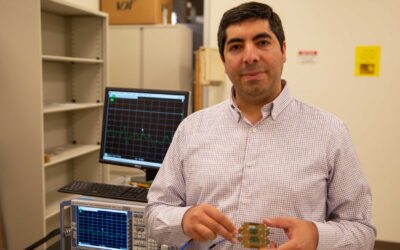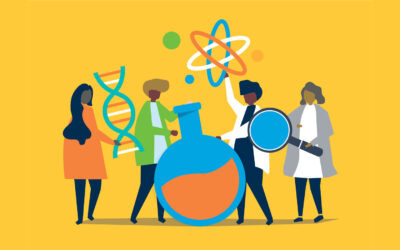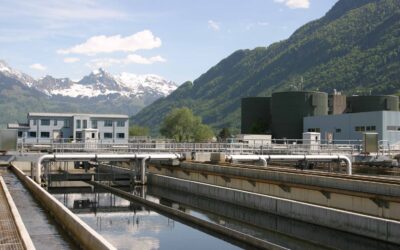ASU, Peace Corps agreement to expand SolarSPELL learning platform’s reach
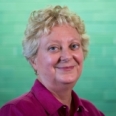 BY MARY BETH FALLER
BY MARY BETH FALLER
July 10, 2020
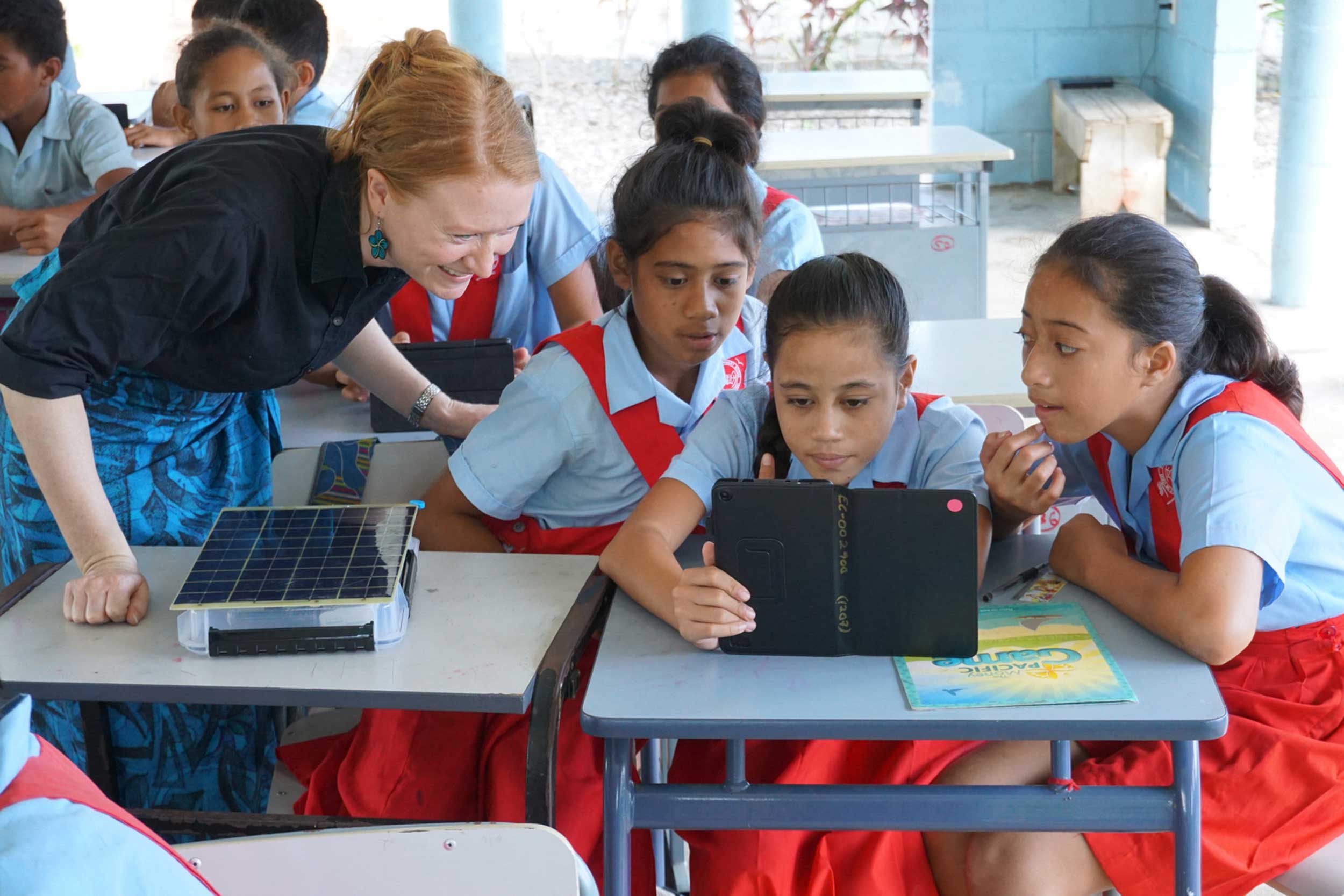
The Peace Corps and Arizona State University have signed a strategic agreement that will help Peace Corps volunteers in the field advance their humanitarian work by using an educational device invented by an ASU professor.
Under the memorandum of understanding, which was marked with a virtual celebration on July 10, Peace Corps volunteers will have wide latitude to use the SolarSPELL portable library, created by Laura Hosman, an associate professor in the School for the Future of Innovation in Society at ASU. The solar-powered device has already been used informally by Peace Corps volunteers who serve in communities without internet service.
ASU ranks eighth in the United States for sending graduates into the Peace Corps, which ASU President Michael Crow said is one of the most important organizations in the U.S. government.
“It’s an exemplar of a whole new logic of sending talent and energy and creativity and youth — and experience, these days — to countries around the world where we partner to solve problems and work together,” he said during the Zoom celebration.
“We will continue to evolve the platform, link with other technologies and work together to be a comprehensive partner to the Peace Corps as a comprehensive teaching, learning and discovery institution that is deeply committed to the attainment of all the things the Peace Corps stands for.”
Jody Olsen, director of the Peace Corps, said the formal agreement strengthens the existing collaboration between volunteers and ASU in international development.
“Peace Corps posts and ASU’s SolarSPELL team have collaborated in multiple countries to provide training and to integrate libraries through the use of the SolarSPELL units into local community-based capacity building projects,” she said.
“To Peace Corps volunteers, SolarSPELL is a gift in how it will help volunteers integrate with community partners and school partners.”
The agreement is a dream come true for Hosman, who developed SolarSPELL in 2015 and has distributed hundreds of devices around the world.
“What we’ve come up with at SolarSPELL is a concept that can go anywhere,” she said.
“And now we’re working with a trusted partner. The government has invited the Peace Corps to be there, and in many cases they have been in that country for 50 years plus.”
Hosman’s journey started 10 years ago, when she visited teachers in remote schools in the Caribbean and Pacific islands.
“They had been handed tablets or laptops and told simply, ‘Transform how you teach using this new technology to bring about amazing results. Go,’” said Hosman, who also is an associate professor in The Polytechnic School in the Ira A. Fulton Schools of Engineering and a senior sustainability scientist in the Julie Ann Wrigley Global Institute of Sustainability.
But the teachers were not trained and didn’t have internet access or even electricity.
So Hosman challenged her engineering students to create a solar-powered library that would fit into a backpack, be resistant to rain, humidity, sand and heat, and work in communities that have limited or no internet connectivity.
But even after creating and distributing the devices, Hosman still was stuck at how to provide the sustained training that local teachers would need to use it.
“I had hit a wall and I didn’t know how to move forward,” she said. “And then one day a Peace Corps volunteer emailed me.”
The volunteer was interested in using SolarSPELL, and after learning about the Peace Corps, Hosman realized the volunteers were ideal liaisons because they spend two years at a posting, often in small, remote villages. The library content is hyper-localized, so having advocates embedded in the field can help determine the kind of information that is most helpful.
“They reach out because they know their communities would benefit, and that’s how you know you’ve really found the right partner,” she said.
The agreement will allow SolarSPELL to greatly expand around the world because Peace Corps volunteers are in more than 100 countries.
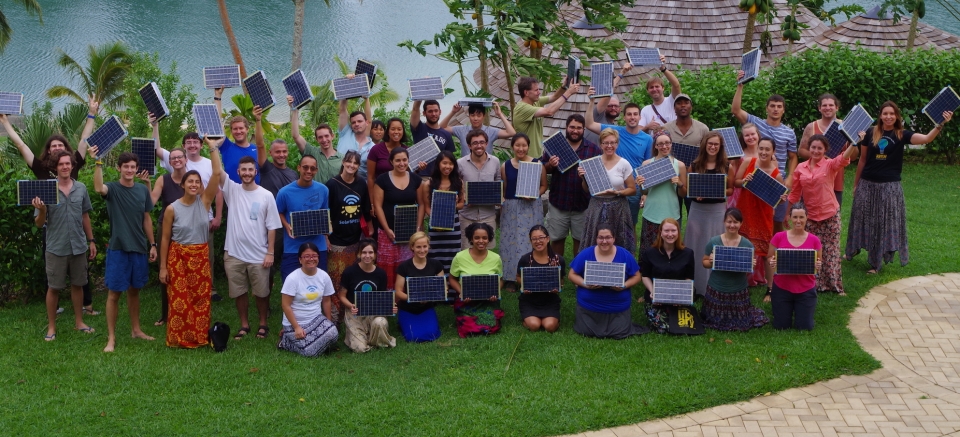
“We are able to demonstrate that there is a way to scale up,” she said. “There are few things in the international development arena that can scale and can fit that concept of going around the world,” she said.
The agreement will help another way: SolarSPELL can now leverage its connection to the Peace Corps for fundraising. Any expansion into new countries will be funded by SolarSPELL, which raises donations for its work.
The SolarSPELL device is simple and inexpensive — the parts cost less than $200. Each case includes a small solar panel, a microcomputer and a micro digital memory card, which contains all of the library content and some code that allows it to be accessed by any type of browser. The device creates a Wi-Fi hot spot, so no electricity or internet connection is needed. Students then connect any Wi-Fi capable device, such as smartphones, tablets or laptops, to access and download the content. Some of the SolarSPELL devices include the tablets too.
“It looks and feels like you’re online even though you’re offline,” Hosman said.
Many Peace Corps volunteers are just out of college and are digital natives. They will be key in helping to develop digital literacy among people who have never encountered the internet.
“They don’t surf to education sites because they don’t know those sites exist, and they never develop skills that we might take for granted of knowing when something is suspect or not trustworthy,” she said.
When talking to people in remote communities, Hosman has asked what they would be interested in if they had connection.
“One hundred percent, the answer is Facebook,” she said.
“Facebook is a huge service to connect with loved ones and to find out when their cousin had a baby. It’s fulfilling a big need but it’s limited and it’s a for-profit company that makes its profits off of emotions.
“So this an opportunity to build information literacy skills and they can become savvy users of information,” she said.
Currently, the COVID-19 pandemic has suspended most travel. The Peace Corps volunteers returned to the U.S. in March and the SolarSPELL team has stayed home. Three new SolarSPELL programs have been paused: a nursing library in Juba, South Sudan; a primary and secondary school library at a refugee camp in Ethiopia that’s in conjunction with Education for Humanity; and a Spanish-language library to be used at the Arizona-Mexico border.
But work on the libraries continues. Typically, up to 60 students are working on curating digital content every semester, mostly drawn from open-source sites.
And SolarSPELL is still helping. In South Sudan, schools are closed because of the pandemic, although lessons are being broadcast over the radio.
“But it’s very difficult for students to make progress because there are no textbooks or learning materials to follow along with the radio lessons,” Hosman said.
“So we put the devices on a motorbike and send them around to the schools, where the parents can come and download the textbooks to take them home.”
Hosman said that the Peace Corps partnership fulfills her longtime goal.
“I don’t see a better partner for us out there to do what I have wanted to do since the beginning of my academic career, which is to help other teachers out there to see technology as a friend and not a foe,” she said.
Originally published in ASU Now, July 10, 2020.
Researchers
Laura Hosman
Associate Professor
The Polytechnic School
You may also like
Engineering evolutionary steps in automated mobility
Fulton Schools researchers pursue tech innovations to make Arizona a leader in automated mobility and smart transportation systems.
Timing is everything: Advances in distributed systems’ time transfer earns ASU researcher DARPA award
Saeed Zeinolabedinzadeh is developing a high-precision, low-latency time transfer scheme for wireless communications to improve security, performance and cost.
Summer pilot program aims to increase diversity in engineering
Summer research pilot between Intel, ASU and Florida A&M University encourages Black engineering students to pursue research, advanced degrees and tech careers.
Progress in water treatment earns accolades for engineering researchers
Naushita Sharma and Paul Westerhoff received accolades from the American Water Works Association for exemplary research in drinking water treatment.

